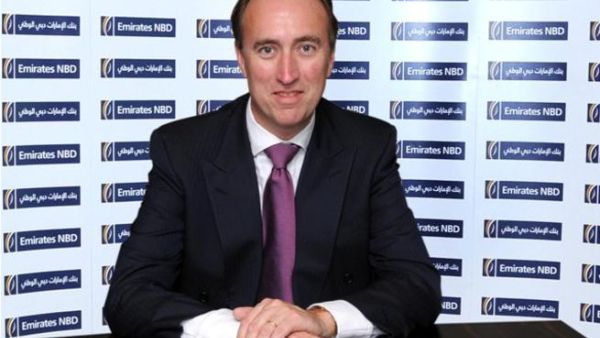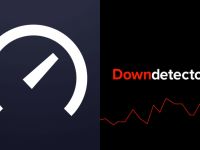Emirates NBD CIO Private Banking Officer: Greece going from bad to worse

The markets remain concerned. The Greek situation goes from bad to worse and the US economy is still consolidating rather than showing any positive momentum. Investors will remain nervous about making too much of a commitment to markets in the current environment. We retain our cautious stance.
US ten year bond yields just above 3% and German bond yields just below 3% paint a picture of ongoing pain in the global economy and risk aversion amongst investors. The level of 10-year bond yields is a very rough approximation of the market’s perception of future nominal GDP growth of an economy. A 3% figure suggests significantly less growth in either the United States or Germany in the future. As bond yields have fallen developed market equities have slipped back. Although US equities showed a modest rally in the final days of last week, for the third successive week equities had a negative return. Volumes have been low suggesting that few investors want to take risk in the current environment due to uncertainty about the future. We remain cautious on equities. From a technical perspective indices such as the S&P500 (US equities) sit around a key support of 1300. If the support breaks then we may see a fall to 1250. On any rebound in the market the limit of rally is probably to 1375. The market currently trades at 1331.
Greece looks a mess. Two-year Greek bonds yield 25%, over ten times the level of Germany. The opposition party – the New Democracy party has said it will not support the new fiscal tightening proposed by the current government. The IMF and Euro zone governments will this week decide whether they will provide further support for the Greek economy. And meanwhile thousands of protestors are on the street complaining about the suggested cuts to government spending proposed by the IMF and the Euro zone plus the excesses of the previous political regimes. The cost of insuring Greek debt against potential default rose to a new high showing that the market already discounts the risk of some kind of restructuring of Greek debt. Watch out for an announcement this week from the IMF and Euro zone on the level of commitment to resolving the Greek problems. Something has to crack; either the Greek government manages to persuade the opposition to support the proposed measures of the IMF and the Euro zone will lose face in backing down and providing interim support for the Greek economy. If the international authorities leave Greece to its own devices, some kind of restructuring/technical default will be inevitable leading to contagion across the Euro zone and trouble for the markets. Also watch out this week for government bond issues in Spain and Italy. Any sense that the problems of Greece will impact other parts of the Euro zone will start to show up in higher bond yields in other highly indebted countries.
Key economic data this week includes a number of data releases from the United States. Investors remain concerned about the slowdown in economic growth. We expect the US data to show ongoing weakness. The employment report is expected to show further weakness in new hiring and the ISM survey of industrial confidence is expected to show a further fall in manufacturing confidence during May. For the markets to see progress they need to see evidence that the US economy is recovering from its recent weakness. Such recovery may still be some months away.
I received news in the last few days that my favourite Japanese restaurant in London was closing. Apparently the nuclear crisis has hit a large number of Japanese restaurants around the world. Despite reassurances diners have remained concerned about the potential health sides effects from consuming products sourced from Japan. Moody’s Investors Services also put the Japanese sovereign rating on negative watch for possible downgrade, following a move a few days earlier by Fitch.
In the last week I have spent a few days in Mongolia a star of the past and potential mega star of the future. A star performer of a stock Market in 2010 the future still looks exciting. The basic story of Mongolia is of a former Soviet satellite that is slowing gaining its confidence and exploiting its undeniable strength of a massive under developed mining industry. Just one example will give you some sense of the potential perspective of the economy and Market. In 2012 the world’s largest copper mine is due to go into production called Oyu Tolgoi. The output of the mine alone will add a forecast 30% to the GDP of Mongolia. The country that once was the centre of the Mongol empire under Genghis Khan that stretched from Europe to Asia has a population of two million of which the majority live in the capital of Ulanbaatar.
The development of the country continues unabated. The Louis Vuitton store has already opened as a sign of the increasing wealth of at least part of the population. Basic infrastructure is still poor, requiring massive investment; however the potential from the development of the natural resources of base and precious metals, and coal should provide the government with increasing income allowing them to invest in the future. It is however chicken and egg. Without the investment in infrastructure the mines can't easily get their product to Market. Without the mines selling product, taxes can't be raised to fund the investment in infrastructure. Irrespective we expect Mongolia to maintain its position as one of the strongest growing economy in the world for some time to come.
Background Information
Emirates NBD
Emirates NBD, the leading banking group in the region, was formed on 19 June 1963, when H.H. Late Sheikh Rashid bin Saeed Al Maktoum signed the Charter of Incorporation of the National Bank of Dubai (NBD) which became the first National Bank established in Dubai and the United Arab Emirates (UAE). With the blessings of H.H. Sheikh Mohammed bin Rashid Al Maktoum, Vice President and Prime Minister of the UAE and Ruler of Dubai, NBD merged with Emirates Bank International (EBI) on 06 March 2007, to form Emirates NBD, the largest banking group in the region by assets. On 16 October 2007, the shares of Emirates NBD were officially listed on the Dubai Financial Market (DFM). The merger between EBI and NBD to create Emirates NBD, became a regional consolidation blueprint for the banking and finance sector as it combined the second and fourth largest banks in the UAE to form a banking champion capable of delivering enhanced value across corporate, retail, private, Islamic and investment banking throughout the region.






